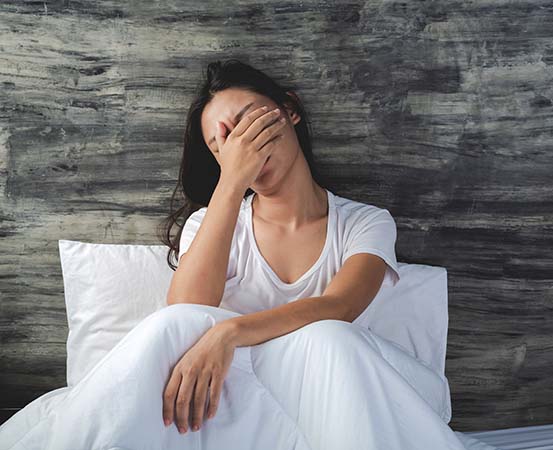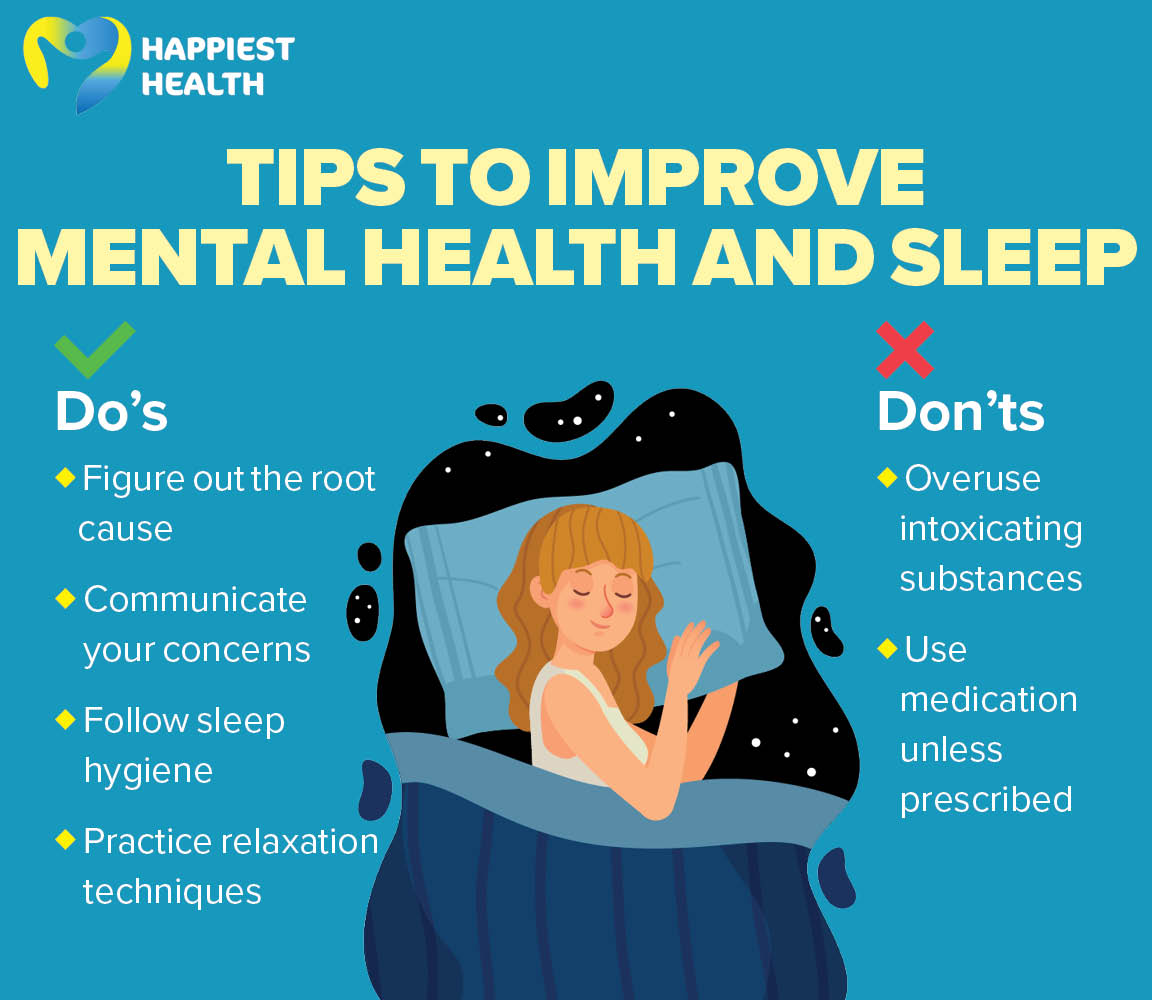
The pressure of cracking a competitive public exam, job hunting and bereavement in the family caused panic attacks in Rachita Naik (name changed), a 25-year-old data analyst from Hyderabad. She was eventually diagnosed with anxiety and mild depression. “2019 was a stressful year. I used to wake up at 1 am, unable to go back to sleep,” says Naik. Moreover, her daytime routine was filled with tiredness and fatigue, with hypersomnia kicking in.
She practised meditation to better her concentration, but in vain. She was then referred to an integrated medicine specialist. “It took time for the prescribed medication to take effect, and I thought of giving up several times. But I stuck to the regime and followed the doctor’s advice — I am doing much better now,” she added.
While mental health conditions can be experienced by anyone around us, experts say sleep deprivation can worsen the situation.
The link between mental health and sleep
In this bi-directional relationship, people with mental health conditions can sleep less or excessively. Mental health issues lead to sleep problems and vice versa, making it a vicious cycle. “In many disorders like depression, anxiety, psychosis, alcohol withdrawal and opiate withdrawal, sleep disturbance is one of the cardinal symptoms”, says Dr BN Gangadhar, senior professor of psychiatry and former director of National Institute of Mental Health and Neurosciences (NIMHANS), Bengaluru.
Sometimes, not having enough sleep itself is a trigger for illnesses. “If an individual with a known diagnosis of bipolar disorder begins to go off their sleep, it can sometimes trigger a manic episode. Similarly, insufficient rest can make people go back to alcohol or drug use,” says Dr R Priya Raghavan, consultant psychiatrist, Cadabam’s Hospital, Bengaluru.
Disturbed sleep patterns in mental health conditions
Sleep problems vary with the type of mental health condition. Dr Preeti Parakh, psychiatrist, and head, Mpower, Kolkata, explains various conditions and the type of disturbances they can cause.
Anxiety: Individuals with anxiety can have difficulty in falling asleep (delayed sleep onset). They often have worrying thoughts and ruminations of stressful events while attempting to doze off, which keeps them awake for longer.
Depression: Both sleep deprivation and hypersomnia (excessive sleep) are seen in this mood disorder. Some experience early morning insomnia, where they wake up at 3 – 4 am and find it difficult to slumber again. Other symptoms include difficulty going down for the night and waking up repeatedly. On the other hand, some sleep more, feel very lethargic and spend most of their time in bed.
Bipolar disorder: In this disorder, there are symptoms of both mania and depression. In the former, people tend to sleep very less while having high energy. They wake up early like in depression and start their regular routine. During the latter phase, they can have trouble dozing off or oversleeping.
Attention deficit hyperactivity disorder (ADHD): This is more prevalent in children; however, adult ADHD is also on the rise. People can find it tough to go down for the night as their mind wanders, causing them to end up sleep deprived.
Is insufficient sleep leading to mental health issues?
Studies suggest long-term sleep disturbances could be a causative factor for depression and anxiety. “Insufficient sleep makes one feel uneasy the next day. They can have trouble concentrating, experience frequent headaches or feel tired. Over time, it decreases productivity and makes them anxious, says Dr Parakh.
A review paper published in Journal of Affective Disorders concludes that non-depressed people with insomnia have a two-fold risk of developing depression compared to people with no such issues. “Chronically sleep-deprived people can develop subclinical psychiatric symptoms. They tend to become easily temperamental. Moreover, they can have a shorter attention span, difficulty in making decisions poor emotional stability. They might be prone to on-and-off road rages along with alcohol or drug abuse,” cautions Dr Gangadhar. He adds, in healthy individuals who might have experienced mental health issues previously, there is a chance of relapse if they start experiencing sleep disturbances.
Ways to improve sleep for better mental health
A recent study suggests that sleep represents a viable treatment target that can offer significant mental health benefits as they are related. The study found that improving sleep was associated with better mental health regardless of the severity of the condition (i.e., clinical or non-clinical). However, it should be noted that solely treating these symptoms does not cure the underlying problem.
Here are a few expert suggestions to help you:

Takeaways
- Sleep disturbances are common in people with mental health issues. Some people find it hard to slumber, while others end up oversleeping.
- Recent studies suggest not sleeping enough can also increase the risk of developing mental health conditions.
- Experts recommend figuring out the root cause of the problem and following strict sleep hygiene measures to help manage the condition.


















2 Responses
Good work
Very good